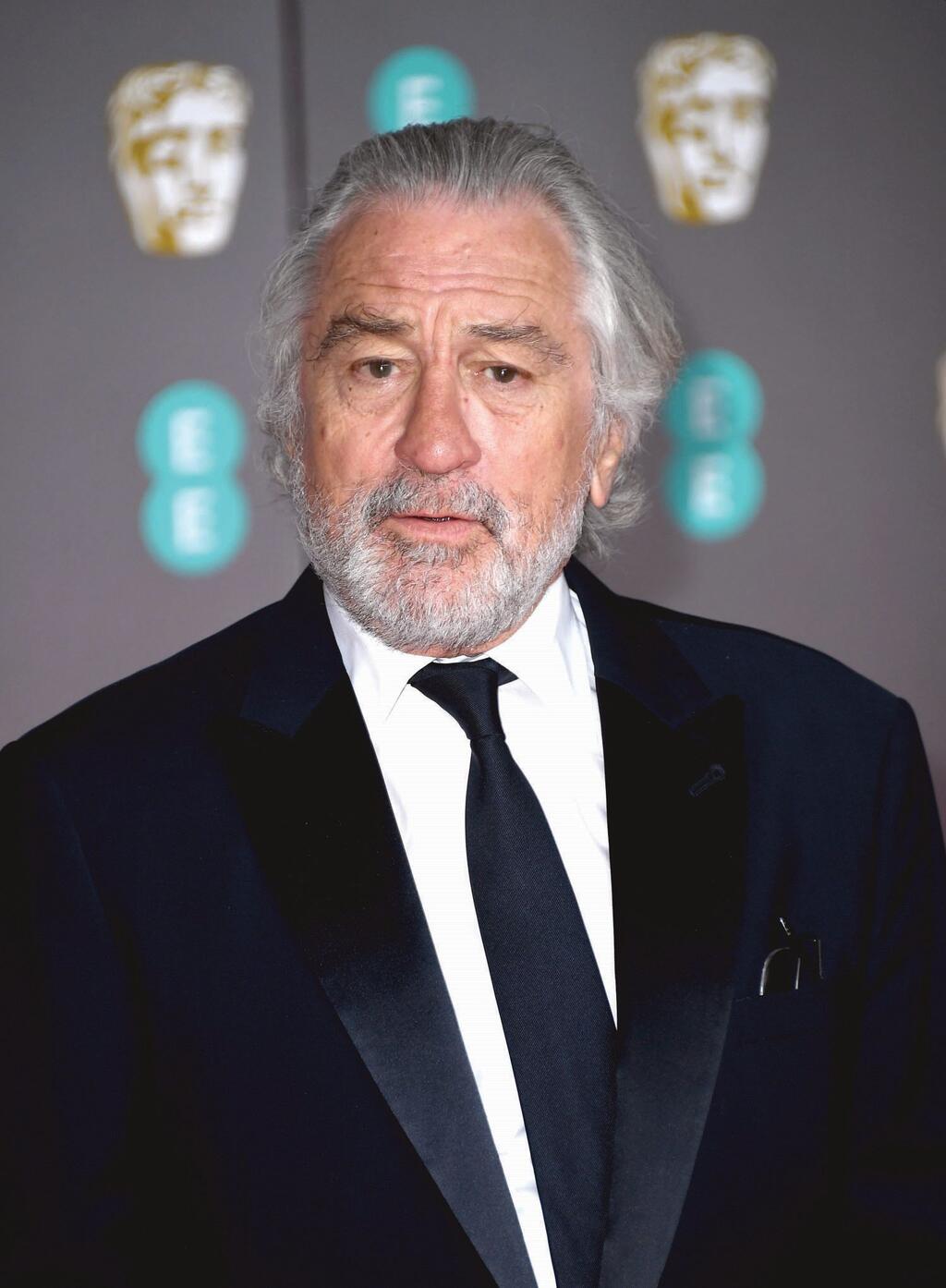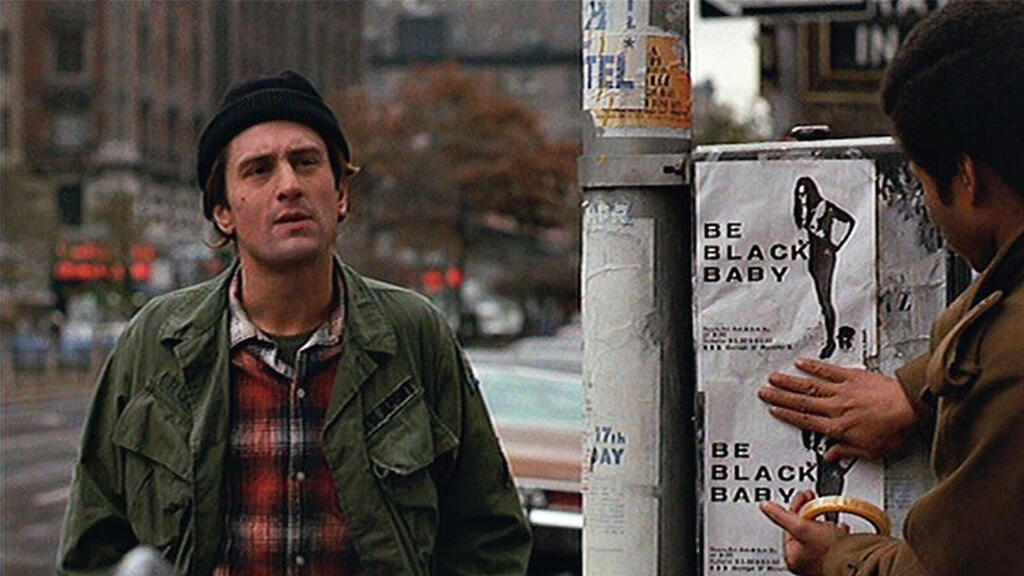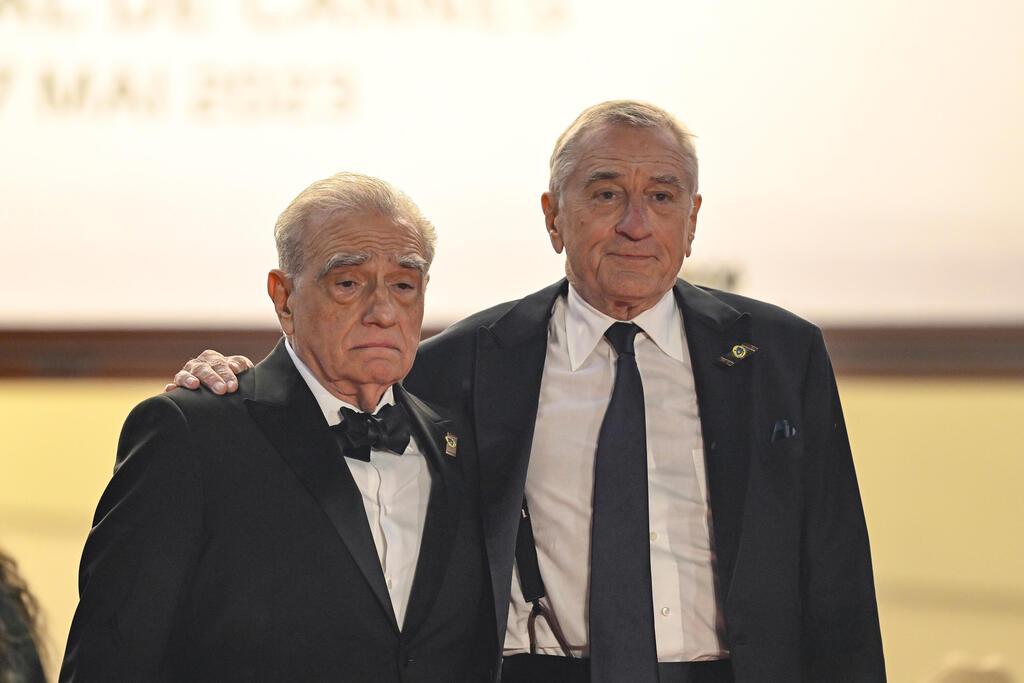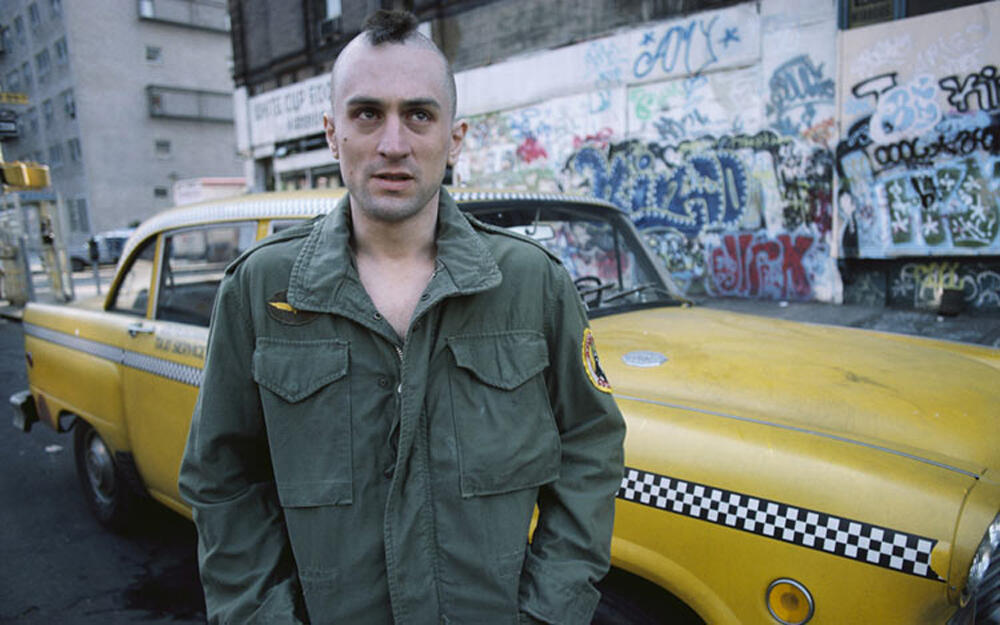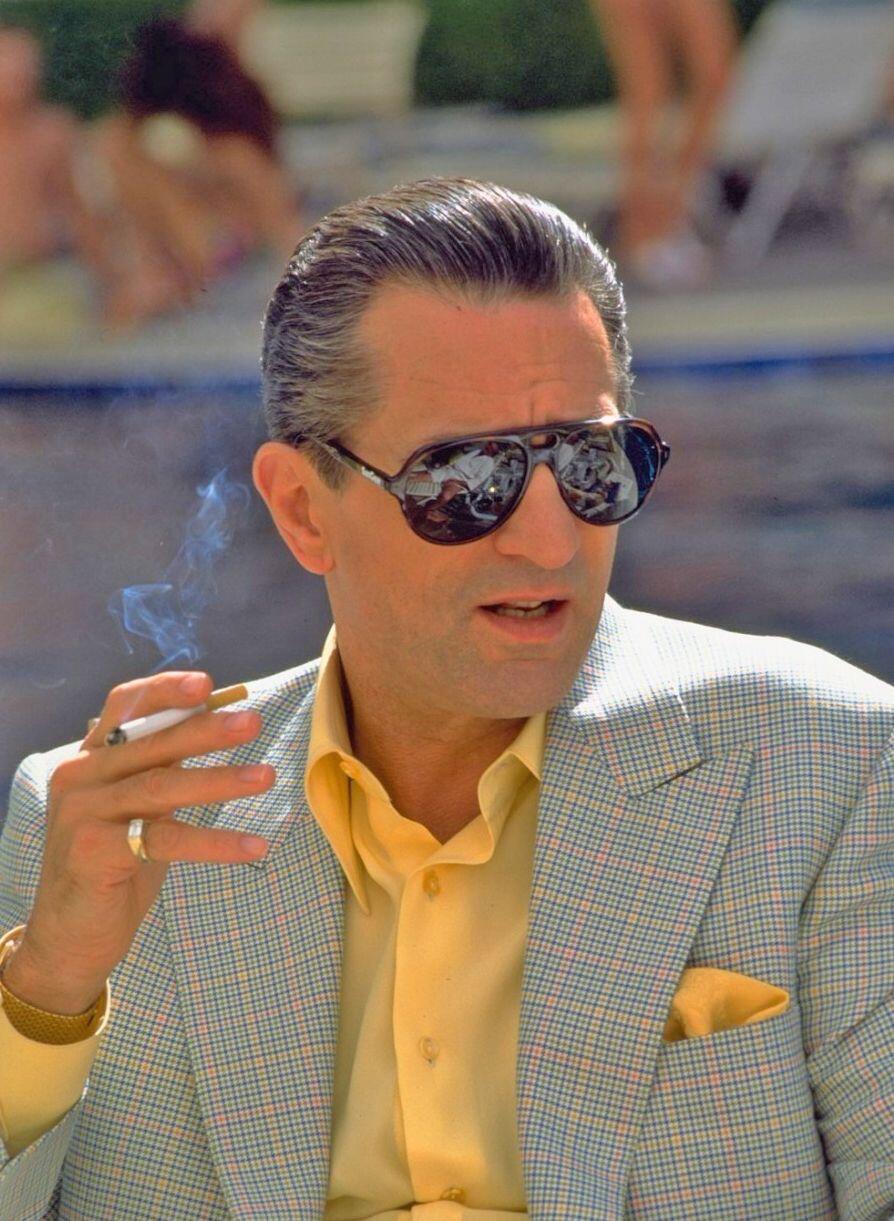Robert De Niro is widely regarded as one of the greatest film actors of all time. At the age of 80, he boasts a remarkable career spanning nearly six decades, during which he has delivered a myriad of unforgettable performances that earned him two Oscar awards, among many other accolades.
Read more:
The American actor's dramatic skills and natural charisma have enabled him to portray a diverse range of characters, mostly on the big screen. Reflecting on his career, he sees himself in roles such as Travis Bickle (Taxi Driver), Jake LaMotta (Raging Bull), Rodrigo Mendoza (The Mission), Max Cady (Cape Fear), James Conway (Goodfellas) and others that are synonymous with the gritty and raw independent American cinema.
6 View gallery
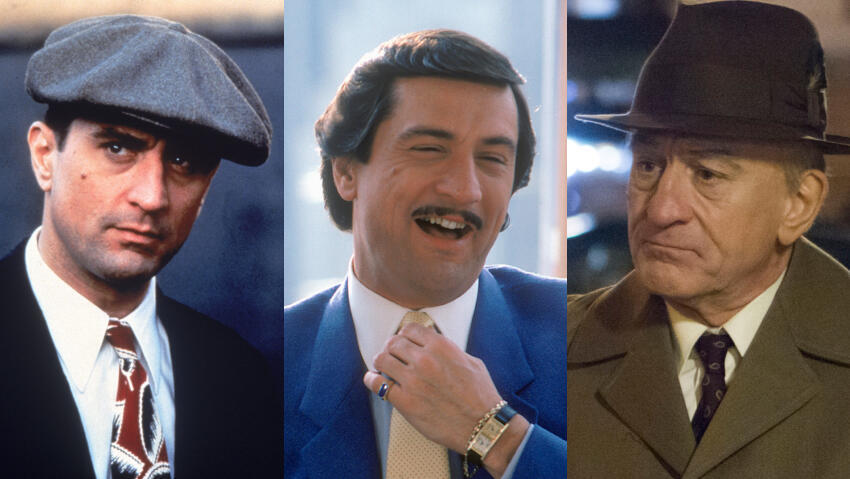

Robert De Niro in Once Upon a Time in America, The King of Comedy and Hands of Stone
(Photo: Courtesy of Yes)
This is the cinema that was elevated by actors of his caliber and his contemporaries like Al Pacino, Jack Nicholson and Dustin Hoffman. However, when viewed against the backdrop of the current socio-cultural landscape in the U.S., a talent like De Niro is seemingly no longer allowed to freely express his artistry, especially not in a Jewish character. He has taken on such roles in the past, but today it's seen as off-limits.
The actor, who recently celebrated his 80th birthday, was born in New York to a father of Italian-Irish descent who was a painter, and a mother who was an artist with a diverse European lineage that spanned France, Germany, Holland and England.
Perhaps due to his breakout role as Vito of the Corleone crime family in The Godfather Part II from 1974, which earned him his first Oscar (as a supporting actor), or because of his surname, De Niro has long been associated with Italian characters. Many of these are stereotypical, in line with prevailing clichés.
But even by the standards of American identity politics, his ethnic roots allow him a broader range of roles that aren't strictly confined to a narrow ethnicity even today. This enables him to play the Irish hitman Frank Sheeran in Martin Scorsese's The Irishman or the Italian mobsters Vito Genovese and Frank Costello in a dual role in Barry Levinson's upcoming crime drama Wise Guys.
However, it seems off-limits for him to portray Jewish characters again, even if they're gangsters. It's deemed inappropriate, possibly due to concerns about "Jewface."
And yet, as he reaches this milestone, we can congratulate De Niro and take this opportunity to highlight his extensive and rich Jewish legacy on screen. This began even before he joined the Corleone family under the direction of Francis Ford Coppola in the mid-seventies.
De Niro's cinematic initiation was marked by his significant first leading role in Brian De Palma's 1968 political comedy Greetings, in which he portrayed a young Jewish man named Jon Rubin trying to evade military service during the Vietnam War.
He reprised to the role two years later in the audacious sequel Hi, Mom!, where Rubin, armed with a camera after returning from the battlefield, has a fervent desire to make films as a voyeur, exposing himself among other things to pornographic scenes, as well as confrontations between Black individuals painted white and white individuals during a provocative performance.
By 1976, the young De Niro was already one of the most promising actors in the United States, having won an Oscar for The Godfather and been nominated for his unforgettable role as Travis Bickle in Taxi Driver.
Director Elia Kazan cast him in his adaptation of F. Scott Fitzgerald's novel The Last Tycoon, where he worked alongside some of the biggest stars of his generation like Jack Nicholson, Tony Curtis and Robert Mitchum. The character De Niro was called upon to portray was Monroe Stahr, a top Hollywood producer who, among other things, works against labor unions in the film industry, notably the newly formed Writers Guild of America (WGA, the same organization currently on strike in a battle against major studios).
According to one version, Stahr's real name is Milton Sternberg, a character based on Irving Thalberg, a son of Jewish German immigrants, known in Hollywood's golden days as one of the founders of Metro-Goldwyn-Mayer (MGM) and one of the industry's most influential figures.
As the go-to actor for talented director Martin Scorsese, De Niro's casting as the lead in the 1982 drama The King of Comedy was a natural choice, despite the intricate character at its heart - the unhinged and marginalized comedian Rupert Pupkin and his obsession with a beloved talk-show host (Jerry Lewis).
Although Pupkin isn't explicitly Jewish, screenwriter Paul Zimmerman embedded hints regarding his heritage in his behavior and dialogue. For instance, Pupkin's famous line from the movie: "Better to be king for a night than schmuck for a lifetime."
Film scholar Joel Rosenberg even officially acknowledged Pupkin's Jewishness in one of his essays. It might not be a rabbinical recognition, but in the eyes of the American cinema audience, it's as good as a formal conversion.
37 years later, De Niro appeared in Todd Phillips' dark thriller Joker, where elements of Pupkin and Travis Bickle converged in the character played by Joaquin Phoenix. De Niro, on the other hand, was cast as the talk-show host character, named Murray Franklin. Not necessarily one of our own, but it's worth noting that there was a Jewish baseball player with that name.
Unlike Pupkin and Franklin, there isn't much ambiguity about the Jewish identity of another fictional stand-up comedian that De Niro portrayed in Taylor Hackford's 2016 comedic drama The Comedian. The protagonist is a renowned comedian publicly known as Jackie Burke, but that's just the stage name for Jacob Berkowitz from a respectable Jewish family in New York.
Unlike the acclaim he received for his roles in The King of Comedy and Joker, the aging actor was met with lukewarm reviews this time around. He may have felt comfortable alongside peers like Harvey Keitel, Danny DeVito, Cloris Leachman, Charles Grodin and Lois Smith, but he was overshadowed by the stage charisma of non-Jewish stand-up comedians Hannibal Buress and Greer Barnes, as well as Jewish comedians Billy Crystal, Gilbert Gottfried and Richard Belzer, who all played themselves on screen.
Among the writers of The Comedian stands out Art Linson, who also contributed to the production of masterpieces such as Fight Club and The Untouchables, as well as several notable films starring De Niro, like We're No Angels (1989) in which he played alongside Neil Jordan as a criminal pretending to be a priest, and Michael Mann's Heat (1995) where he portrayed thief Neil McCauley
Similarly, in Alfonso Cuarón's modern adaptation of Great Expectations, which Linson produced, De Niro was cast as Arthur Lustig, the counterpart to Dickens' Abel Magwitch who undergoes a conversion in the film version.
In 2008, Linson took it a step further by selecting his favored actor, De Niro, to play a version of himself in the satirical drama What Just Happened? directed by Barry Levinson. In this film, which unfolds behind the scenes of Hollywood and is based on Linson's memoir, De Niro plays a Jewish producer trying to salvage a spiraling project while juggling his personal life and relationships with industry professionals who are more committed to their own eccentricities than to their work.
The Rocky film series with Sylvester Stallone presents a somewhat skewed reality where behind every gritty boxer rising from the slums, there's a diminutive Jewish figure, either as a coach or promoter. Just as Mickey Goldmill (played by Burgess Meredith) mentored Rocky Balboa, inspired by Charlie Goldman who trained real-life boxer Rocky Marciano.
This exception doesn't necessarily dictate the rule, but Robert De Niro had the opportunity to portray another renowned Jewish trainer from the real world: Ray Arcel. De Niro took on the role of the aging yet tough Jewish man in Hands of Stone, following the life of Panamanian boxer Roberto Duran (played by Edgar Ramírez) and his rise to prominence under Arcel's guidance.
In De Niro's portrayal, Arcel comes off as particularly assertive and irritable, especially when speaking Yiddish. Jonathan Jakubowicz's boxing drama was met with tepid reviews in 2016, and its box office failure foreshadowed the professional decline of its producer, Harvey Weinstein, predating his personal downfall.
De Niro, who won an Oscar for his portrayal of legendary boxer Jake LaMotta in Raging Bull, managed to dodge the aligns and arrows and avoid a career knockout. In an interview with Ynet conducted at the Cannes Festival, he even showcased an impressive ability to swear in Yiddish.
It's uncertain how natural it feels for an actor to portray Jewish comedians or even boxing coaches, but there's no doubt that he's always felt at ease playing mobsters, regardless of religion, race or ethnic origin. Whether Italian, Irish, or Jewish, it all works.
With this in mind, Sergio Leone had no hesitation in casting De Niro in the lead role of David "Noodles" Aaronson in his 1984 crime drama Once Upon a Time in America (and no objections were noted from the Israeli producer Arnon Milchan). Over a decade later, after having portrayed real-life gangsters like Al Capone and James Conway, he was chosen by Scorsese for the role of the mobster Frank "Lefty" Rosenthal in the movie Casino, under the name Sam "Ace" Rothstein.
As usual, the director placed his trust in De Niro and offered him the lead role irrespective of his actual background, something that might not necessarily happen today. It seems that even gangsters need to get the approval of the progressive casting office in the United States.
The stringent norms of American political correctness might be the reason we no longer see De Niro portraying Jewish characters, not just because of the slowing pace of his work in his advanced age. Just as we saw with Helen Mirren playing Golda Meir in the historical drama Golda by Guy Nattiv, which faced claims of exclusivity in the vein of "we Jews should be telling our own stories."
Considering this, we might have to settle with De Niro's performance in The Wizard of Lies from 2017 as his last portrayal of a Jewish, albeit non-religious, character. In Barry Levinson's TV drama, he played Bernie Madoff, not a mobster but a white-collar mega-criminal. Even though he did so with great skill, so much so that journalist Diana B. Henriques, who covered the scandalous pyramid scheme of the New York banker, said she found it hard to distinguish between the actor and Madoff himself.
Now, as he turns 80, we can thank him for this gift and others he offered in service to the Jewish community, even if some might not want them.


